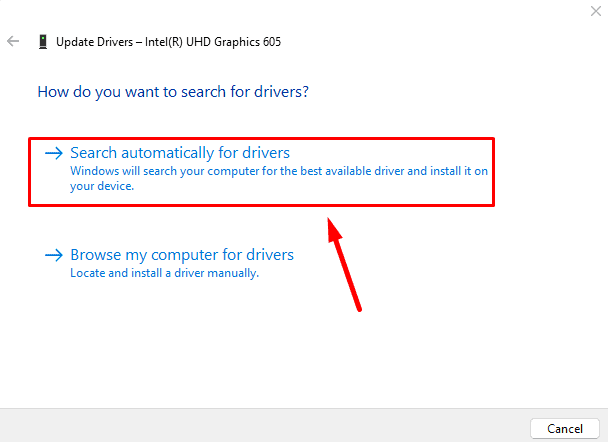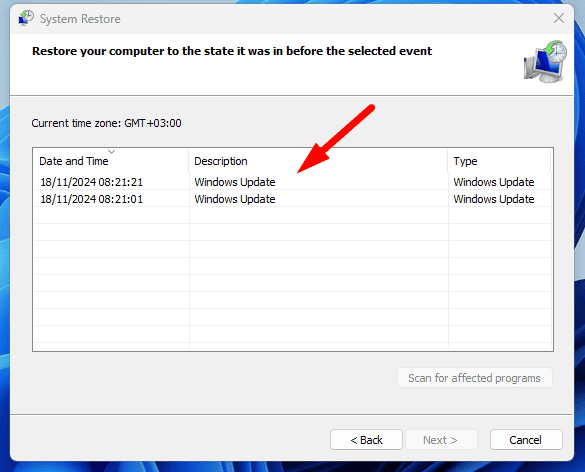How To Fix Blurry Screen on Windows 11 - Troubleshooting Guide
Fixing a Blurry Screen on Windows 11: A Comprehensive Guide
A blurry screen on Windows 11 is often caused by outdated or incorrect display drivers or system settings. This guide provides troubleshooting steps to restore your display's clarity.
Key Points:
- Blurry screens are frequently due to outdated display drivers or incorrect PC settings.
- Simple solutions include restarting your PC, updating Windows, and running a malware scan.
- More involved fixes involve updating or reinstalling display drivers, adjusting display settings, enabling ClearType, and tweaking app-specific DPI settings or graphics preferences.

Quick Fixes:
Begin with these simple steps:
- Restart your PC: Access the Start menu, then Power, and select Restart.
- Update Windows: Press Windows Key I, navigate to Update & Security > Windows Update, and check for and install any available updates.
- Run a malware scan: Open Windows Security > Virus & threat protection > Scan options > Full scan > Scan now.
Advanced Troubleshooting:
If the quick fixes fail, try these more advanced methods:
1. Update Display Drivers: Outdated or corrupted display drivers are a common cause.
- Right-click the Start button and select Device Manager.

- Expand Display Adapters, right-click your display adapter, and select Update driver.

- Choose Search automatically for drivers. Windows will install the latest version if found.

2. Reinstall Display Drivers: Reinstallation can fix driver corruption.
- Open Device Manager.
- Expand Display adapters, right-click your graphics card, and select Uninstall device.

- Confirm the uninstallation.

- Restart your PC; Windows will reinstall the drivers.
3. Enable ClearType Text: This improves text readability on LCD screens.
- Press the Windows key, search for "ClearType," and open Adjust ClearType text.

- Turn on ClearType and follow the on-screen instructions.



4. Adjust Display Resolution and Scaling: Incorrect settings can cause blurriness.
- Right-click the desktop and select Display settings.

- Set the resolution to the recommended value (usually the highest).

- Set the Scale to 100%.

5. Adjust App DPI Settings: Some apps may not scale correctly.
- Right-click a blurry app shortcut, select Properties, then the Compatibility tab.

- Click Change high DPI settings, check "Override high DPI scaling behavior," and click OK.


6. Select Best Appearance Settings: Optimize Windows appearance for clarity.
- Press Windows Key R, type
sysdm.cpl, and press Enter.
- Go to the Advanced tab, click Settings under Performance, and select Adjust for best appearance.


7. Adjust App Graphics Preferences: Manage app resource usage.
- Go to Settings (Windows key I) > Display > Graphics.


- Select the app and choose High Performance under GPU Preference.

8. Perform System Restore (Last Resort): Revert to a previous stable system state.
- Press Windows key S, search for "Create a restore point," and open it.

- Click System Restore, select a restoration point, and follow the prompts.



By following these steps, you should be able to resolve most blurry screen issues on Windows 11. If problems persist, consider seeking further technical assistance.
The above is the detailed content of How To Fix Blurry Screen on Windows 11 - Troubleshooting Guide. For more information, please follow other related articles on the PHP Chinese website!

Hot AI Tools

Undresser.AI Undress
AI-powered app for creating realistic nude photos

AI Clothes Remover
Online AI tool for removing clothes from photos.

Undress AI Tool
Undress images for free

Clothoff.io
AI clothes remover

Video Face Swap
Swap faces in any video effortlessly with our completely free AI face swap tool!

Hot Article

Hot Tools

Notepad++7.3.1
Easy-to-use and free code editor

SublimeText3 Chinese version
Chinese version, very easy to use

Zend Studio 13.0.1
Powerful PHP integrated development environment

Dreamweaver CS6
Visual web development tools

SublimeText3 Mac version
God-level code editing software (SublimeText3)

Hot Topics
 1664
1664
 14
14
 1423
1423
 52
52
 1317
1317
 25
25
 1268
1268
 29
29
 1242
1242
 24
24
 Windows kb5054979 update information Update content list
Apr 15, 2025 pm 05:36 PM
Windows kb5054979 update information Update content list
Apr 15, 2025 pm 05:36 PM
KB5054979 is a cumulative security update released on March 27, 2025, for Windows 11 version 24H2. It targets .NET Framework versions 3.5 and 4.8.1, enhancing security and overall stability. Notably, the update addresses an issue with file and directory operations on UNC shares using System.IO APIs. Two installation methods are provided: one through Windows Settings by checking for updates under Windows Update, and the other via a manual download from the Microsoft Update Catalog.
 Nanoleaf Wants to Change How You Charge Your Tech
Apr 17, 2025 am 01:03 AM
Nanoleaf Wants to Change How You Charge Your Tech
Apr 17, 2025 am 01:03 AM
Nanoleaf's Pegboard Desk Dock: A Stylish and Functional Desk Organizer Tired of the same old charging setup? Nanoleaf's new Pegboard Desk Dock offers a stylish and functional alternative. This multifunctional desk accessory boasts 32 full-color RGB
 Got an AMD CPU and Aren't Using PBO? You're Missing Out
Apr 12, 2025 pm 09:02 PM
Got an AMD CPU and Aren't Using PBO? You're Missing Out
Apr 12, 2025 pm 09:02 PM
Unlocking Ryzen's Potential: A Simple Guide to Precision Boost Overdrive (PBO) Overclocking your new PC can seem daunting. While performance gains might feel elusive, leaving potential untapped is even less appealing. Fortunately, AMD Ryzen processo
 ASUS' ROG Zephyrus G14 OLED Gaming Laptop Is $300 Off
Apr 16, 2025 am 03:01 AM
ASUS' ROG Zephyrus G14 OLED Gaming Laptop Is $300 Off
Apr 16, 2025 am 03:01 AM
ASUS ROG Zephyrus G14 Esports Laptop Special Offer! Buy ASUS ROG Zephyrus G14 Esports Laptop now and enjoy a $300 offer! Original price is $1999, current price is only $1699! Enjoy immersive gaming experience anytime, anywhere, or use it as a reliable portable workstation. Best Buy currently offers offers on this 2024 14-inch ASUS ROG Zephyrus G14 e-sports laptop. Its powerful configuration and performance are impressive. This ASUS ROG Zephyrus G14 e-sports laptop costs 16 on Best Buy
 How to Use Windows 11 as a Bluetooth Audio Receiver
Apr 15, 2025 am 03:01 AM
How to Use Windows 11 as a Bluetooth Audio Receiver
Apr 15, 2025 am 03:01 AM
Turn your Windows 11 PC into a Bluetooth speaker and enjoy your favorite music from your phone! This guide shows you how to easily connect your iPhone or Android device to your computer for audio playback. Step 1: Pair Your Bluetooth Device First, pa
 5 Hidden Windows Features You Should Be Using
Apr 16, 2025 am 12:57 AM
5 Hidden Windows Features You Should Be Using
Apr 16, 2025 am 12:57 AM
Unlock Hidden Windows Features for a Smoother Experience! Discover surprisingly useful Windows functionalities that can significantly enhance your computing experience. Even seasoned Windows users might find some new tricks here. Dynamic Lock: Auto
 Microsoft Might Finally Fix Windows 11's Start Menu
Apr 10, 2025 pm 12:07 PM
Microsoft Might Finally Fix Windows 11's Start Menu
Apr 10, 2025 pm 12:07 PM
Windows 11's Start Menu Gets a Much-Needed Overhaul Microsoft's Windows 11 Start menu, initially criticized for its less-than-intuitive app access, is undergoing a significant redesign. Early testing reveals a vastly improved user experience. The up
 You Can Get The Razer Basilisk V3 Pro Mouse for 39% off
Apr 09, 2025 am 03:01 AM
You Can Get The Razer Basilisk V3 Pro Mouse for 39% off
Apr 09, 2025 am 03:01 AM
##### Razer Basilisk V3 Pro: High-performance wireless gaming mouse The Razer Basilisk V3 Pro is a high-performance wireless gaming mouse with high customization (11 programmable buttons, Chroma RGB) and versatile connectivity. It has excellent sensors, durable switches and extra long battery life. If you are a gamer looking for a high-quality wireless mouse and need excellent customization options, now is a great time to buy the Razer Basilisk V3 Pro. The promotion cuts prices by 39% and has limited promotion periods. This mouse is larger, 5.11 inches long and 2 inches wide





























